LIVE: Venezuela heads to polls for presidential vote

Follow GSW's live coverage of Venezuela's Presidential Election 2024, a pivotal election for the country following the 2018 elections.
LIVE UPDATES
This is the end of our live coverage. Thank you for following. Follow GSW for updates and final declaration of the election results by the National Electoral Council (CNE) of Venezuela.
1120 GMT: Preliminary and official vote results are yet to be released. However, election exit polls from international research firm Edison Research which operates in more than 66 countries globally indicate a 61% vote lead for Edmundo González and 31% for Nicolás Maduro.
1119 GMT: Polls in Venezuela are officially closed.
1105 GMT: Here are some photos from various voting centres and stations including those abroad where Venezuelans voted.
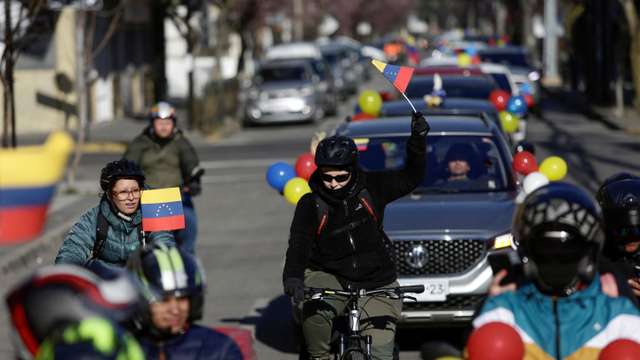
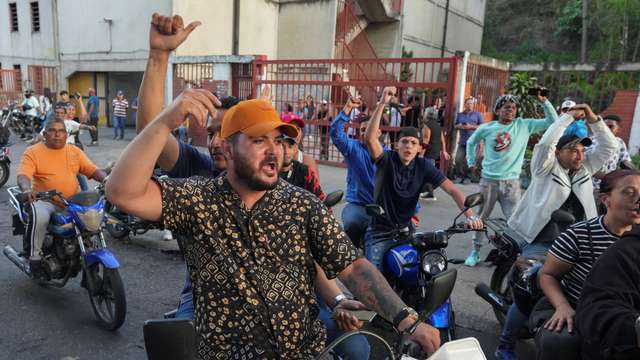

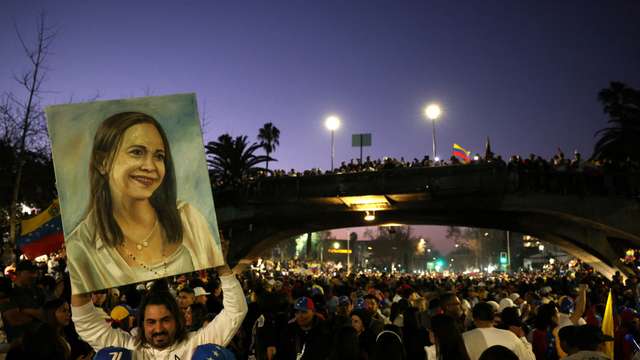
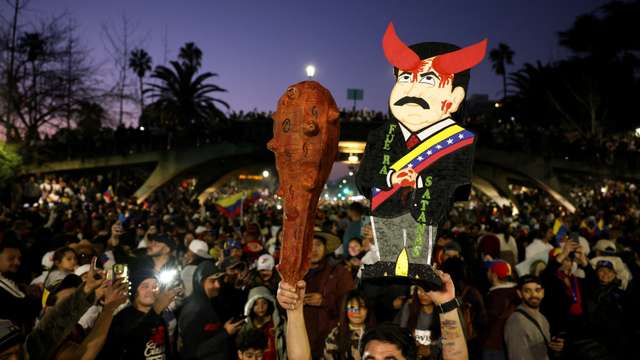
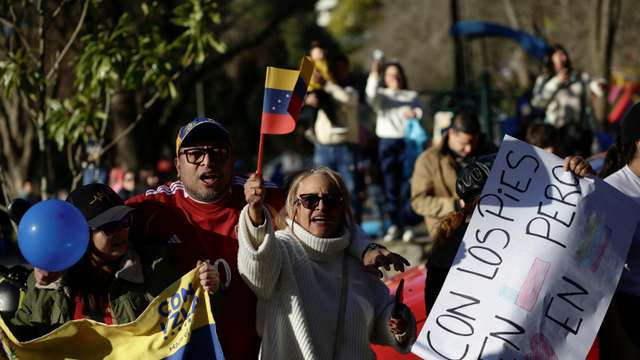

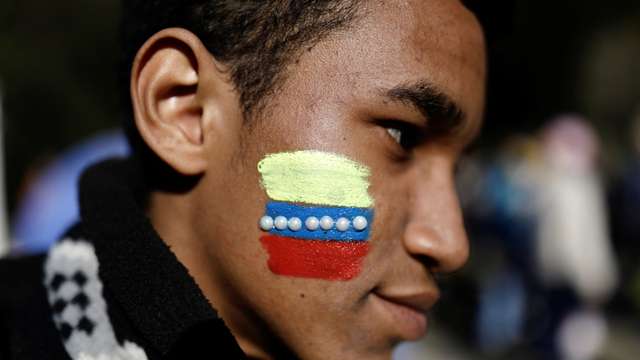
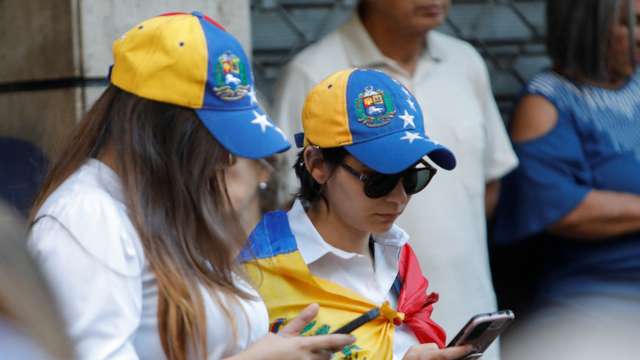
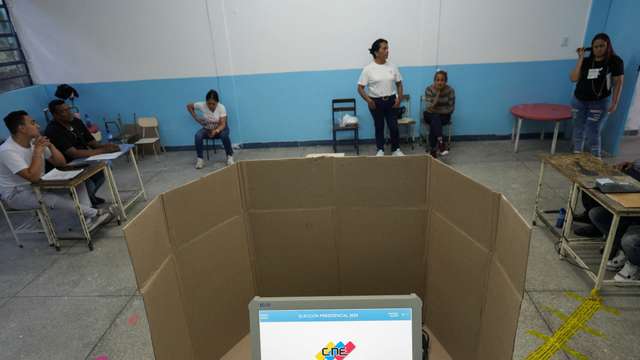


1055 GMT: There were allegations of voters getting stranded and refused a chance to vote at some polling stations including the Concentrada #54 in the municipality of José Maria Vargas just hours before closing the voting day.
1049 GMT: Some voters remained stranded at Agustín Tovar y Tovar School, unable to cast their votes earlier in the day.
1040 GMT: Vice President of the Electoral Power, Carlos Quintero earlier assured that respect for the popular will is guaranteed in the Presidential Election.
0957 GMT: According to Agencia Venezuela News, an international observer has confirmed free and fair elections amidst firm security.
"I have never seen anything like this, a lot of transparency and protection that is nothing like what we have in the US, the elections were stolen there while here there are fair and free elections," Jackson Hinkle was quoted.
0930 GMT: Polling stations including the José Ávalos, Pedro Emilio Coll, Fray Pedro de Agreda and Luis Cárdenas Saavedra high schools in the El Valle and Coche parishes recorded very low number of voters around 0930 GMT after high participation earlier.
0924 GMT: "Go out and vote," Maduro urges citizens as elections near closing.
0812 GMT: Bolivarian National Guard of Venezuela (GNB) officials arrived at the CEI Prados del Sol, in Araure to picket at the entrance of the voting centre.
0718 GMT: Here are some photos of Machado from her voting centre.
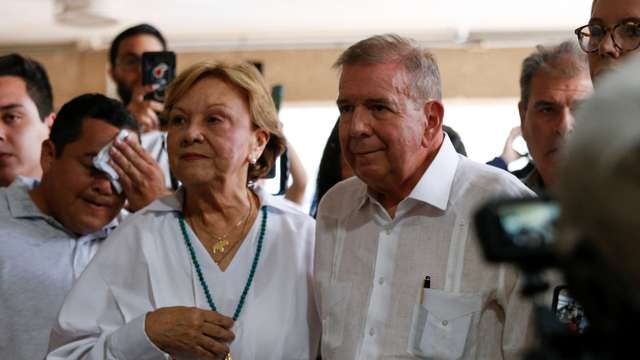
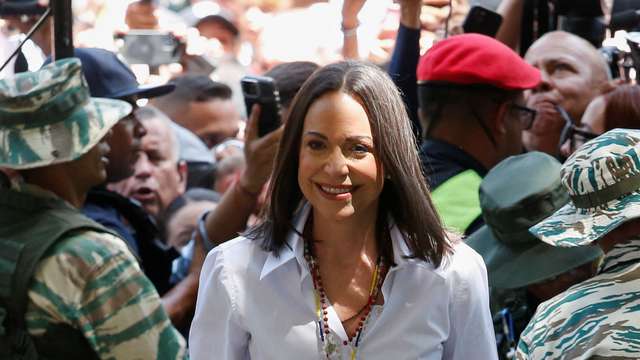
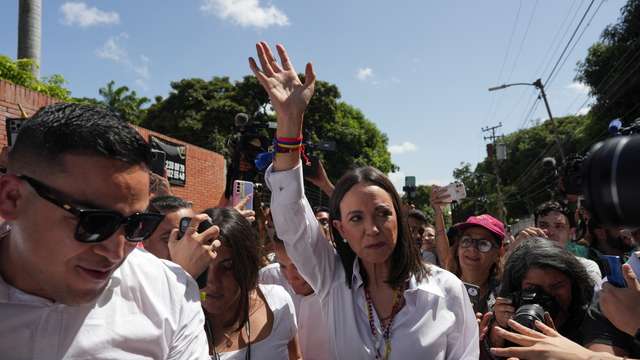

0713 GMT: “We need everyone to remain present at their voting centres. Let the witnesses know that they are not alone, that the community is around them,” Machado as she addressed the crowd after voting.
0640 GMT: The moment when former Opposition Candidate Maria Corina Machado cast her vote in Los Chorros, Caracas.
0630 GMT: A citizen is captured on video writing down voters' ID numbers at a polling centre. Security team Plan República arrests her for committing this crime.
0536 GMT: Earlier reports suggest that the doors at José Carrillo Moreno EBP in the municipality of #Tinaco were closed; voters were left stranded for hours.
0524 GMT: Venezuelans gather during Venezuela's election voting day in Bogota, Colombia.
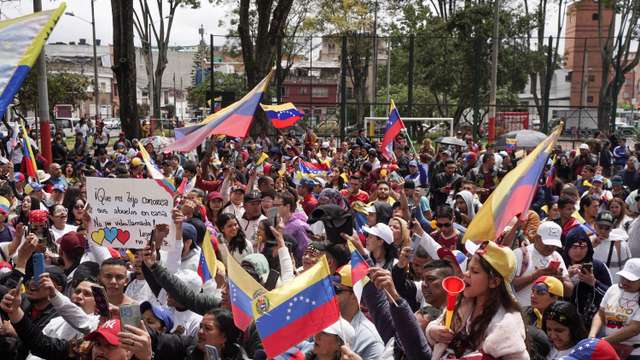


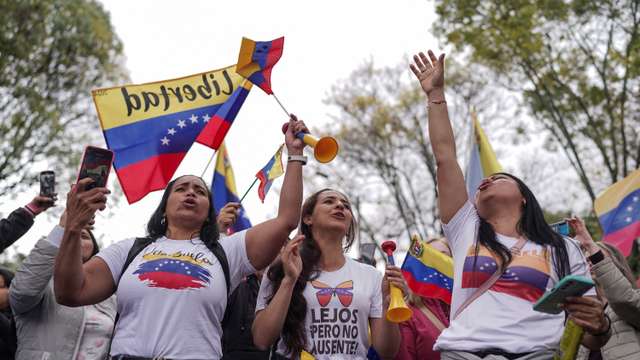

0520 GMT: People cast their votes at the Venezuelan Embassy in Santiago, Chile.
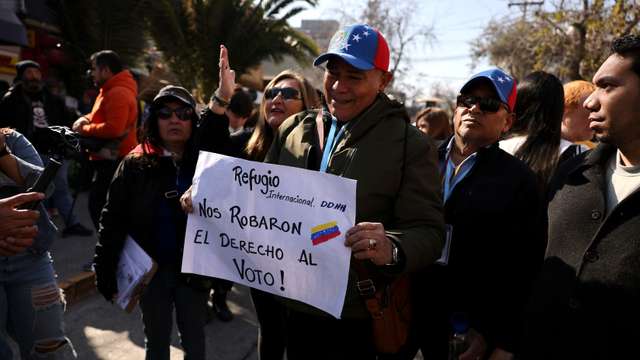

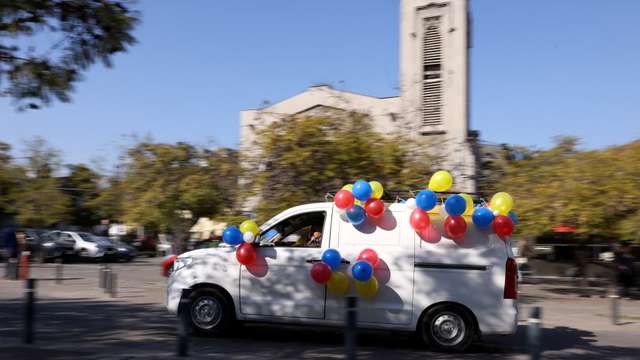
0502 GMT: Former Opposition candidate Maria Corina Machado visited selected voting centres in Caracas earlier.
0453 GMT: Earlier reports from the Boca Caneyes Educational Unit in the Guasimos municipality indicate that there was a halt of the voting process with allegations that voters were asked to hand over their ID to the Plan República when entering the voting centre.
0449 GMT: Gonzalez announced his vote on his X page. "I already voted for each and every one of you. Go Venezuela!".
0443 GMT: Opposition candidate Edmundo González and candidate of the Democratic Unitary Platform has cast his vote at the Colegio Santo Tomás de Villanueva. He arrived in his yellow Volkswagen to exercise his right to vote.


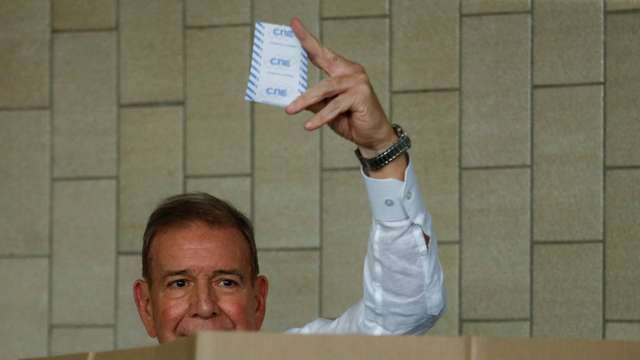

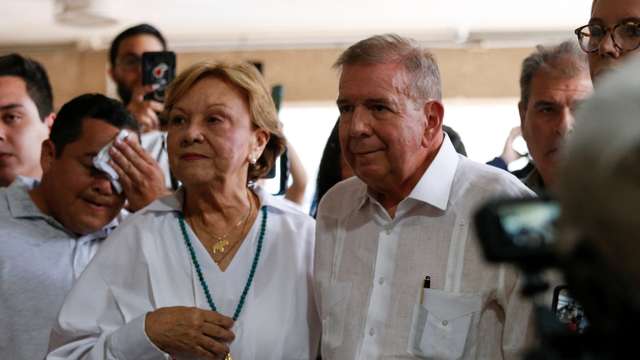
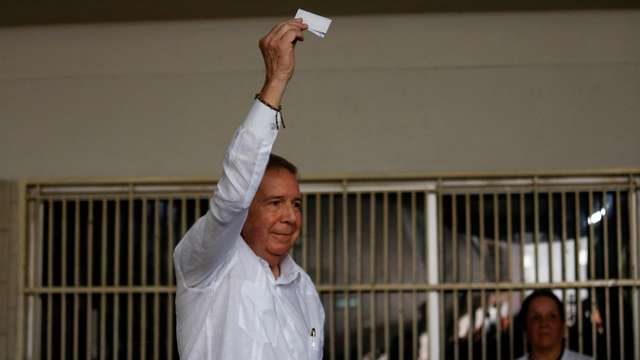
0421 GMT: Some Venezuelans who have voted take to social media to share their sentiments. Here are a few tweets:
0424 GMT: Scores gather in El Hatillo municipality in Venezuela to cast their votes
0355 GMT: People wait to vote in Venezuela Tachira state bordering Colombia
People form long queues outside polling stations in the state of Tachira, as Venezuelans vote between the continuity of President Nicolas Maduro or change with rival Edmundo Gonzalez Urrutia amid high tension after the incumbent threatened a "bloodbath" if he loses.
0257 GMT: Venezuelans wait outside the consulate to vote in Mexico City

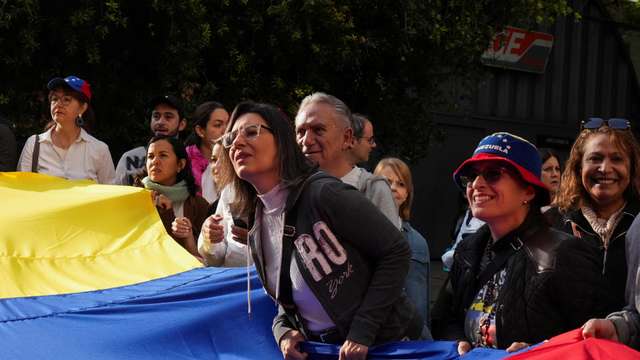
0250 GMT: Opposition candidate is booed at voting centre
As presidential candidate Daniel Ceballos arrived to vote at a school in downtown Caracas, a large group of opposition supporters shouted, “Get out! Get out! Get out! Traitor!”
Ceballos, who led anti-Maduro protests in 2014 demanding the president’s resignation shortly after his election and was imprisoned for his strong opposition to the government, is now running as a presidential candidate.
0246 GMT: The only requirement for voting is an identity card
President of the National Electoral Council, Elvis Amoroso reiterates that no dress code or use of masks is required to exercise the right to vote. "The only requirement is the identity card, even if it has expired."
0203 GMT: 95% of polling stations are open
President of the National Electoral Council, Elvis Amoroso, announced that 95% of voting centres across Venezuela are currently open.
0158 GMT: Venezuelans destroy Chavista placed near polling stations as a form of intimidation and shout, “Freedom! Freedom!”
0138 GMT: Volunteers from the pro-government and opposition parties confront electoral centre in Caracas
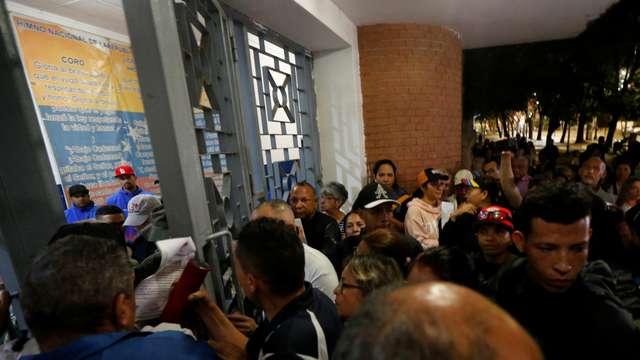


0122 GMT: Maduro apologizes for denying entry to former presidents who would observe elections
Venezuelan President Nicolas Maduro apologised on Saturday for vetoing the group of former presidents, congressmen and former parliamentarians who were prevented from entering the country to observe Sunday's presidential elections after being invited by the opposition.
Panama's President Jose Raul Mulino on Friday accused the Venezuelan authorities of blocking a flight carrying a group of former Latin American presidents hoping to observe Venezuela's weekend elections.
1243 GMT: Venezuelans vote in the country's presidential election

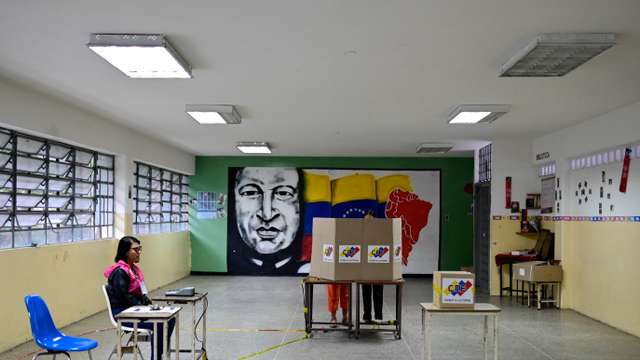
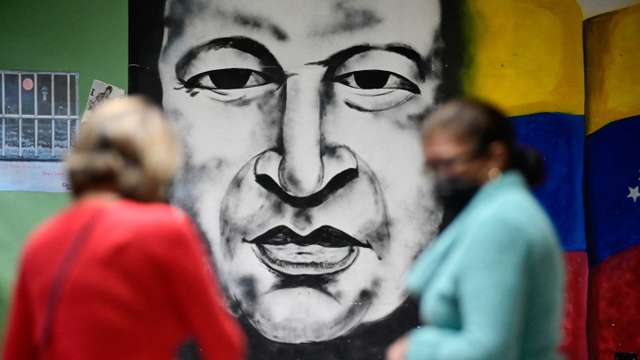
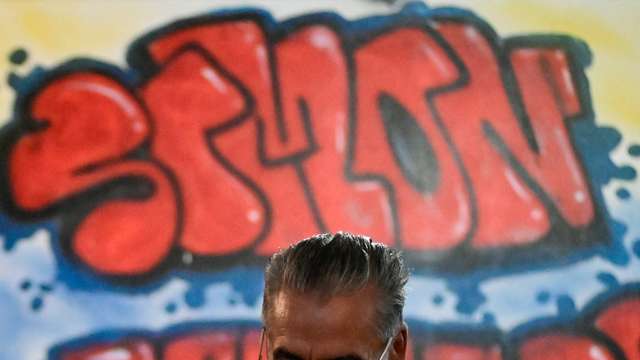
1230 GMT: A group arrives on motorbikes, and tries to intimidate voters
1218 GMT: Government officials block Party representatives from observing at voting centre
More than an hour after polling stations were supposed to open, at least eight party representatives authorized by the National Electoral Council to oversee operations at the largest voting centre in Caracas were denied entry.
The government officials at the door claimed that all necessary personnel were already inside.
Marlyn Hernandez, the voting centre coordinator, said she “did not know” why the authorized party representatives were being denied entry to the school, where over 11,000 people are registered to vote.

1210 GMT: Venezuelans vote in the country's presidential election

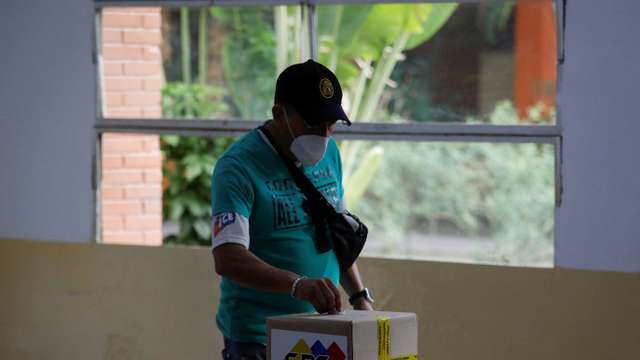
1206 GMT: Maduro says he will respect election results
“No one is going to create chaos in Venezuela. I recognize and will recognize the electoral referee, the official announcements and I will make sure they are recognized," Maduro said after casting his vote.
He also urged the other nine candidates to respect and publicly declare their commitment to accepting the official announcement of the election winner.
1200 GMT: Some polling stations are yet to open
Polling stations in Venezuela were scheduled to open at 6 a.m. today, but reports indicate that some locations have yet to begin operations.
1131 GMT: Venezuelans are set on voting Maduro out
As Venezuelans head to the polls to cast their votes, many do so with the hope of ending President Nicolás Maduro's 11-year tenure.
The country has struggled with a severe economic crisis, marked by hyperinflation, food and medicine shortages, and mass emigration. For many Venezuelans, the upcoming election represents a critical opportunity to change the country's trajectory.
"We can't continue like this," said Maria Fernandez, a teacher in Caracas. "We need new leadership to rebuild our nation."
1127 GMT: Maduro addresses the media after casting his vote
"The day arrived, I said it was going to arrive in peace and it arrived in peace. Today must be a day, in the name of God, in Venezuela good triumphs, by doing good," Maduro said.
1045 GMT: Maduro casts his vote
Shortly after the polls opened, Venezuelan President Nicolas Maduro and presidential candidate accompanied by his wife cast his vote at Fort Tiuna in Caracas, the largest military base in the country.
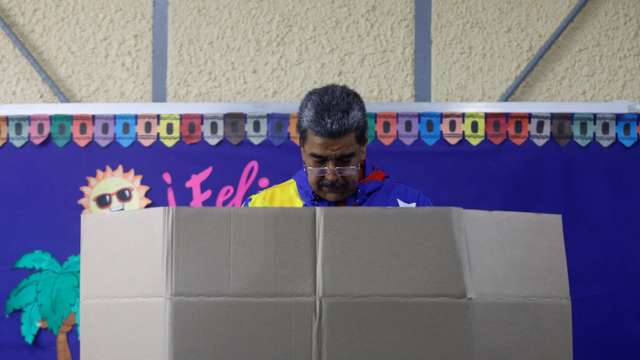
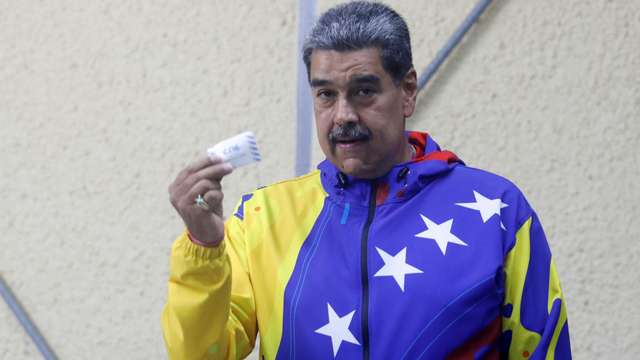
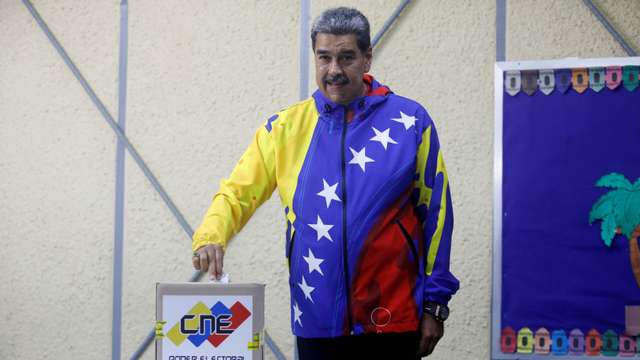
1039 GMT: Polls open in Venezuela
Venezuelans who had queued up hours before polls were scheduled to open can now cast their votes.

1033 GMT: Venezuelan President Nicolás Maduro has urged Venezuelans to vote.
1004 GMT: Expatriates participate in a protest
Expatriates participate in a protest asking for freedom to vote during the Venezuelan presidential election, outside the Cultural Center Fernando de los Rios, in Madrid, Spain.
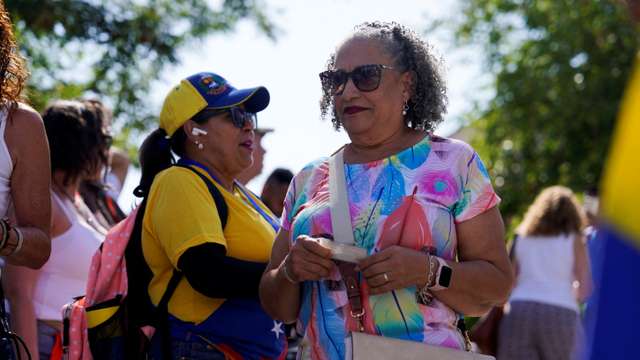
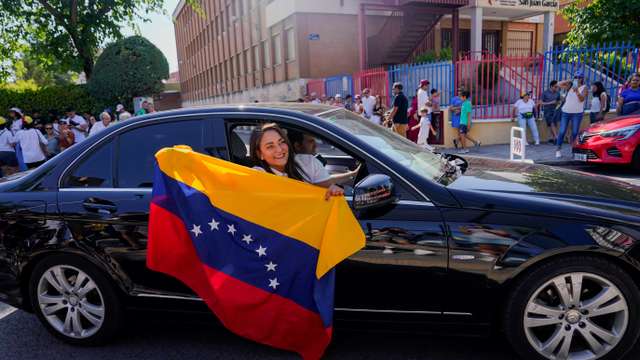
0931 GMT: Venezuelans hold vigil at voting centres
Thousands of Venezuelans across the country are holding vigils for democracy at voting centres. These vigils reflect the enthusiasm and commitment of citizens at a crucial moment for the future of Venezuela.
0737 GMT: Venezuelan expatriates participate in the elections.
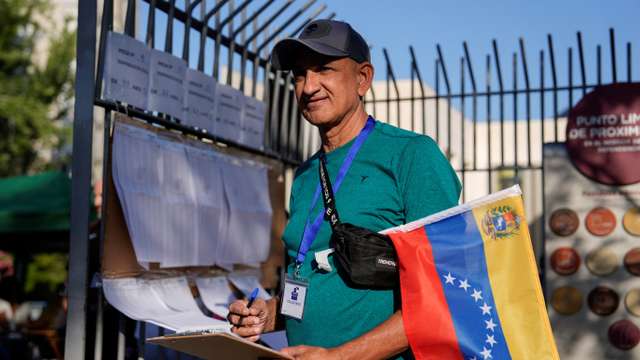

0451 GMT: Venezuelans wait outside a closed voting station to vote.
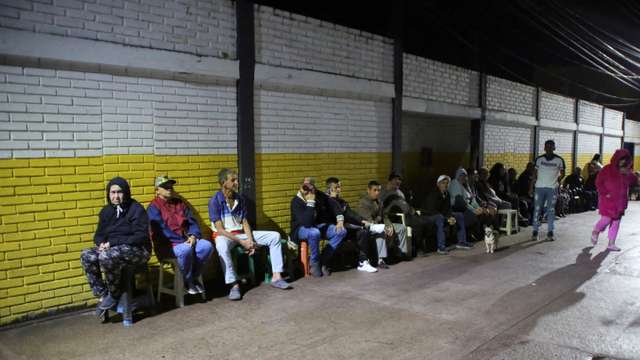


July 27 1957 GMT: Venezuelans express their views on the upcoming election.
July 26 1729 GMT: The CNE prepares voting stations ahead of the presidential election.
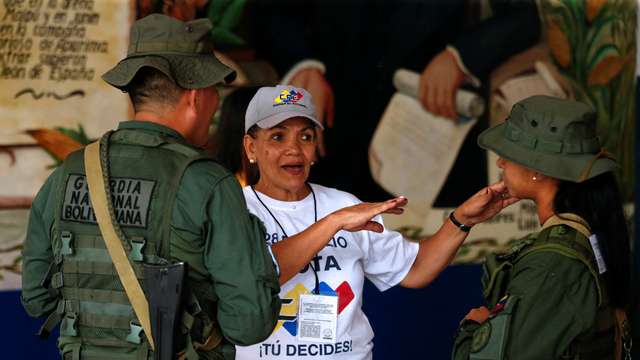
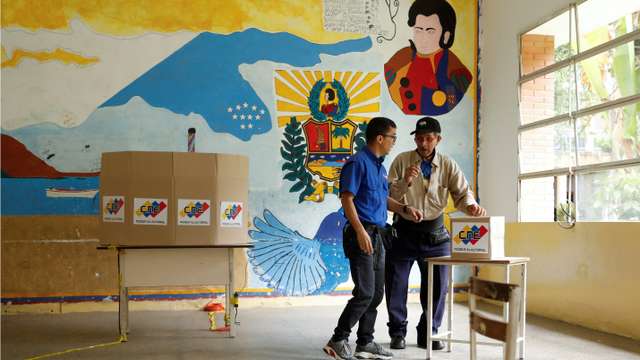
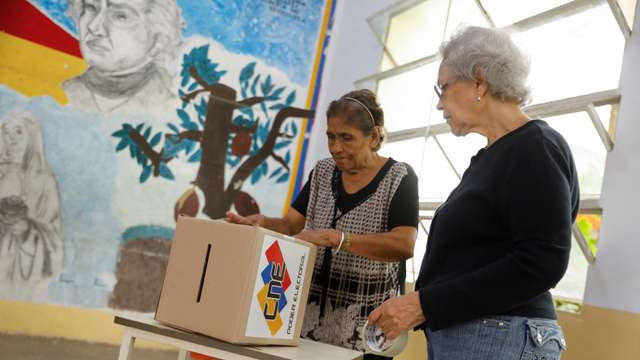




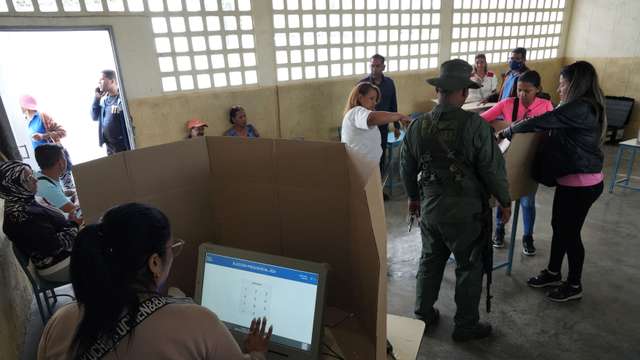
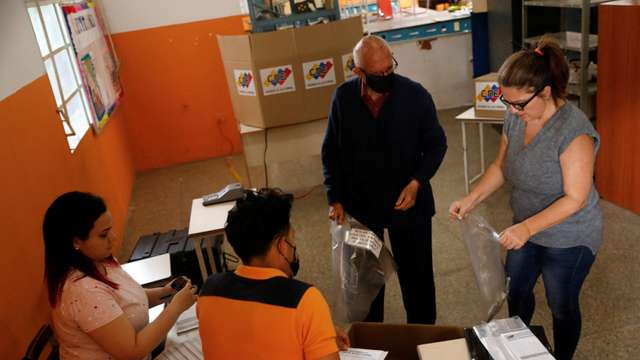
Polls are expected to open at 6:00 a.m. local time (1000 GMT) and to close at 6:00 p.m. local time (2200 GMT on Sunday).
ELECTIONS BACKGROUND
Venezuelans are going to vote for a leader in the presidential elections. This follows the over 11-year rule of incumbent president Nicolas Maduro who assumed his position as president in 2013, following the sudden death of his predecessor, Hugo Chavez.
This election follows the last election in the country which came off in 2018, during which Maduro won 67.8% of the votes amid a significant opposition boycott.
The National Electoral Council (CNE) has confirmed 10 candidates are running for the presidency.
The outcome of the elections will determine the South American country’s political and economic landscape over the next six years. It is also vital for the future of the close to 8 million Venezuelans who have fled the country since 2013 over the economic crisis in the country.
President Maduro’s name appears 13 times on the ballot for Sunday’s elections, each appearance signifies every political group he represents in the election. He takes up the first four rows and leaves the rest of the slots for other candidates to share. His closest contender Eduardo González appears three times on the ballot while Luis Eduardo Martinez who represents Democratic Action and is considered a government ally shows up six times.
Polls are expected to open at 6 am (GMT-4) and close when the last person casts their votes. Polls have closed around 6 pm (GMT-4) in previous times but this may differ depending on how the process goes during the day.
Candidates

10 candidates are vying for the presidency in the upcoming elections.
The main candidates in the election are Nicolas Maduro 61, who is the current president and represents the United Socialist Party of Venezuela, and Edmundo Gonzalez Urrutia, 74, who is a candidate for Plataforma Unitaria Democratica (PUD) and represents the opposition. He is an academic and former diplomat and became a replacement for María Corina Machado who was the party’s previous candidate chosen to unseat Maduro.
Other candidates include Luis Eduardo Martinez who represents Democratic Action, Daniel Ceballos of the AREPA party, Antonio Ecarri of LAPIZ, Benjamin Rausseo of the CONDE Party, and Jose Brito Rodriguez who represents Venezuela First. The others are Claudio Fermin of Solutions for Venezuela, Javier Bertucci from Hope for Change, and Enrique Marquez of CENNTRADOS.
Electoral system
The President of Venezuela is elected by a simple majority vote and serves a six-year term. Voting in Venezuela is digital and can be audited at all stages. According to the National Electoral Commission, the voting process is fully automated. The Comprehensive Authentication System (SAI) allows the voter to activate a voting machine with their fingerprints after which the voter can cast their vote directly by pressing the VOTE option on the machine’s screen or the electronic ballot.
The individual’s vote is stored randomly in the machine’s memory and is recorded subsequently in the printed tally sheets. Voters also get physical receipts that confirm their voting choice. These receipts are supposed to be put in a provided ballot box to be used for comparison with the data on the tally sheets.
At the end of the day, the machine prints a record of results — in front of electoral witnesses — and then sends the data by telephone or satellite to the counting centre.
Voter eligibility
Citizens who are 18 years old and above are eligible to vote in Venezuela if they are registered on the voters' register and are not subjected to disenfranchisement. This includes nationals residing both in the country and abroad. However, there have been concerns about the registration of nationals abroad for the voting exercise. Out of the close to 8 million Venezuelans living outside the country, official figures from the country's electoral authority show just under 68,000 are registered to vote abroad. Their inability to register, according to voter advocacy groups is a result of closed consulates and high demands for documents.
Security
According to the National Electoral Council, more than 380 thousand officials of the Bolivarian National Armed Forces (FANB) will be deployed throughout the national territory to fulfil their duty to guard and ensure security during the electoral process.